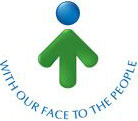Rights and obligations of athletes included in the Anti-Doping Centre’s Registered Testing Pool
Each athlete included in the Anti-Doping Centre Registered Testing Pool must provide current and accurate whereabouts information via the Anti-Doping Administration and Management System (ADAMS).
The deadline for submission of whereabouts information is the day before the first day of every quarter of the calendar year, i.e.:
• December 31 (for January, February and March);
• March 31 (for April, May and June);
• June 30 (for July, August and September); and
• September 30 (for October, November and December).
Athletes in the Anti-Doping Centre’s Registered Testing Pool have the obligation to provide whereabouts that contain at least the following information:
• for each day during the following quarter, one specific 60-minute time slot between 5 a.m. and 11 p.m. each day where the athlete will be available and accessible for testing at a specific location;
• for each day during the following quarter, the full address of the athlete’s overnight accommodation (e.g. home, temporary lodgings, hotel, etc.);
• for each day during the following quarter, the name and address of each location where the athlete will conduct any regular activity (e.g. train, work, school), as well as the usual time-frames for such regular activities;
• the name and address of each location where the athlete is scheduled to compete during the quarter and the relevant dates;
• a complete mailing and/or e-mail address where correspondence may be sent to the athlete for formal notice purposes.
An athlete in the Anti-Doping Centre’s Registered Testing Pool may choose to delegate the making of some or all of his/her whereabouts filings to someone else. To this end, the athlete and other person must complete and file a special form with the Anti-Doping Centre. However, the athlete remains ultimately responsible at all times for making sure that his/her whereabouts information is accurate and that he/she is available for testing at the declared whereabouts, especially during the 60-minute time slot.
A failure by an athlete (or other person to whom the athlete has delegated this task) to make an accurate and complete whereabouts filing or to be available for testing at the location and time specified for the 60-minute time-slot, may result in the Anti-Doping Centre launching a result management process to establish a filing failure or a missed test (collectively known as a “whereabouts failure”). In the various stages of this process, the athlete has the right:
• to respond by disputing the whereabouts failure and providing his/her comments why he/she failed to meet the deadline for submission of whereabouts or was not available for testing during the 60-minute time slot for the day in question;
• to ask for a further administrative review of the case based on written evidence before a final determination is made.
Every filing failure and/or missed test will be recorded against the athlete. Where three whereabouts failures are committed in an 12-month period, the Anti-Doping Centre will refer the matter to the Disciplinary Commission with the Bulgarian Olympic Committee as a possible anti-doping rule violation under Article 6, Paragraph 2, Item 4 of the Regulations on Anti-Doping Activities. If the Anti-Doping Centre proves that the athlete has indeed committed the three alleged whereabouts failures, the hearing panel of the Disciplinary Commission will have discretion to impose a period of ineligibility on the athlete of between one and two years. If this is not the first offence of the athlete, the period of ineligibility will range between two and four years or longer.
General rights and obligations
Rights and obligations during testing







